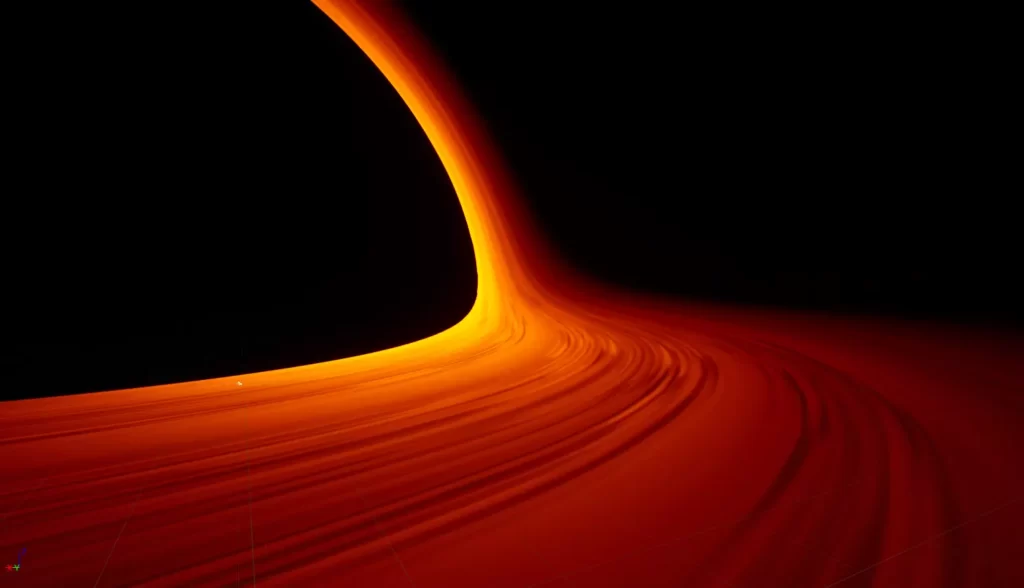Introduction
Ever wondered why the term “black hole” was chosen to describe these fascinating cosmic phenomena? This article delves into the intriguing history and science behind the naming of black holes. We’ll explore the origins of the term, the scientific principles that led to its adoption, and the significance it holds in our understanding of the universe. So, why was the name black hole given? Let’s dive in and find out!
The Birth of a Concept: Early Theories and Discoveries
The Idea of ‘Dark Stars’
Before the term “black hole” was coined, there was the concept of “dark stars.” In the 18th century, English natural philosopher John Michell proposed the idea of stars so massive and dense that their gravitational pull would be so strong, not even light could escape. This was the first inkling of the concept that would eventually evolve into our modern understanding of black holes.
Einstein’s Theory of Relativity: A Game Changer
Fast forward to the early 20th century, Albert Einstein’s theory of relativity revolutionized our understanding of gravity and the fabric of space-time. His groundbreaking work laid the foundation for the theoretical existence of black holes, although Einstein himself was skeptical of the idea.
Why Was the Name Black Hole Given?
The Birth of a Term
The term “black hole” was coined in 1967 by American physicist John Wheeler. He used it during a lecture to describe objects so dense that nothing, not even light, could escape their gravitational pull. The name was fitting, as these objects would appear black against the backdrop of space due to their light-trapping nature.
Why ‘Black Hole’?
The name “black hole” is a simple yet powerful descriptor. “Black” refers to the fact that these objects do not emit or reflect light, making them invisible to traditional observational methods. “Hole” suggests an opening or void, which is fitting given the extreme gravitational pull of these objects, as if they’re sucking in everything around them.
It has accretion disk that glows, so how it is black hole?
While the black hole itself doesn’t emit light, the intense gravitational pull can draw in surrounding matter, forming a disk known as an accretion disk. As this matter spirals in and becomes compressed, it heats up and emits light, often in the form of X-rays. However, once anything crosses the event horizon, the point of no return, it’s swallowed by the black hole and becomes invisible. Thus, the black hole remains “black.”

The Science Behind Black Holes
Understanding Gravity
To fully grasp why the name black hole was given, it’s crucial to understand the concept of gravity. Gravity is the force that attracts two objects towards each other. In the case of black holes, their gravity is so strong due to their immense mass and density.
The Event Horizon: Point of No Return
The event horizon is a boundary around a black hole beyond which nothing can escape, not even light. This is why black holes appear black; any light that strays too close is swallowed up, never to be seen again.
FAQs
1. Who first proposed the concept of black holes?
The concept of black holes was first proposed by John Michell in the 18th century, although the term “black hole” was not used until 1967 by John Wheeler.
2. Why are black holes invisible?
Black holes are invisible because their gravitational pull is so strong that it traps light. Without light reflecting off an object and reaching our eyes or telescopes, we cannot see the object. This is why black holes are black.
3. What is the event horizon of a black hole?
The event horizon is the boundary around a black hole beyond which nothing can escape, including light. It’s often referred to as the point of no return.
4. Can we observe black holes?
While black holes themselves are invisible because they trap light, scientists can infer their presence and study them by detecting their effects on nearby matter. If a black hole passes through a cloud of interstellar matter or a star comes close to a black hole, it can draw matter inward in a process known as accretion. As the attracted matter accelerates and heats up, it emits x-rays that radiate into space. This is one of the primary ways scientists observe black holes.
5. What is the significance of black holes in our understanding of the universe?
Black holes play a crucial role in our understanding of the universe. They challenge our comprehension of physics, especially when it comes to integrating gravity with quantum mechanics. The study of black holes has led to significant advancements in theoretical physics, including the development of general relativity and our understanding of spacetime.
6. Can anything escape a black hole?
The gravitational pull of a black hole is so strong that nothing, not even light, can escape once it crosses the event horizon. However, there is a theoretical prediction known as Hawking radiation which suggests that black holes can slowly lose energy, or “evaporate,” over time. This, however, is still a topic of ongoing research.
Why Was the Name Black Hole Given?
In short, the name “black hole” was chosen to depict space objects so massive that they trap everything, even light, making them appear as dark, empty spaces, hence “black holes”. This simple yet powerful term perfectly encapsulates their mysterious nature.
Conclusion
The term “black hole” perfectly encapsulates the nature of these fascinating cosmic entities. Born from the remnants of massive stars, black holes are regions of spacetime where gravity is so strong that nothing, not even light, can escape. Their discovery and ongoing study continue to challenge and expand our understanding of the universe. So, why was the name black hole given? It’s a fitting descriptor for an object that is both dark due to its light-trapping nature and a “hole” with an immense gravitational pull.


